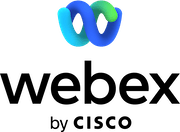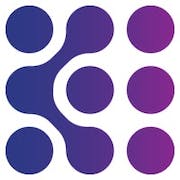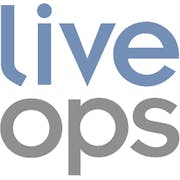Are you in the market for a new Call Center Software solution? Whether you're a small startup or a rapidly growing enterprise, choosing the right software can make or break your call center operations. With countless options on the market, the process of selecting a system can be overwhelming and time-consuming. That's where this Call Center Software buyer's guide comes in. In this guide, we'll steer you through the key features and functionalities that you should consider, so you can make an informed decision. From IVR systems and omnichannel support to workforce management and reporting tools, we've got you covered. So, let's dive in and find the perfect solution for your business!
What is Call Center Software
Call center software is a must-have for businesses that want to provide high-quality customer support. It automates call routing, provides call recordings, and other useful features that enable a centralized department to handle inbound and outbound calls from customers. There are two types of call center software: on-premises and cloud-based. On-premises systems operate from in-house servers, making maintenance centralized and providing better call quality. Cloud-based solutions, on the other hand, are more flexible and require less upfront investment. Common Use Cases: - Automatic call routing - Real-time monitoring - Integration with CRMs, which allows faster ticket resolution - Recording calls for quality assurance and training purposes - Providing agents with additional context to improve customer interactions - Offering personalized interactions with customers - Handling high call volumes Many types of companies use call center software. Here are a few examples: - E-commerce and retail businesses that need to provide customer support 24/7 - Financial institutions that handle large volumes of customer inquiries - Healthcare providers that require immediate response times - Service providers such as telecoms and utilities that need to handle inquiries and complaints In conclusion, call center software is vital for businesses that want to offer high-quality customer support. Whether on-premises or cloud-based, call center software provides several benefits, including automation, monitoring, and integration with CRMs, that enable centralized departments to handle inbound and outbound calls from customers. It offers several use cases, including automatic call routing, recording calls, and providing agents with additional context. Companies across various sectors, including e-commerce, finance, healthcare, and service providers, can use call center software to handle inquiries, offer personalized interactions with customers, and improve response times.
Benefits of Call Center Software
Call center software plays a crucial role in improving customer experience and boosting business performance. With technological advancements, companies can now streamline their operations efficiently, ensuring customer satisfaction and loyalty. Below are the main benefits of implementing call center software: - Improved Customer Service: With call center software, businesses can handle high call volumes with ease, reducing wait times and enhancing customer satisfaction. Additionally, advanced features like call routing, call analytics, and IVR systems enable quick problem resolution, reducing the need to escalate complaints. - Enhanced Sales and Revenue: By using call analytics, businesses can identify trends, customer needs, and conversion rates, allowing them to tailor their sales approaches and boost revenue. Moreover, call center software enables agents to handle inbound sales calls more efficiently, leading to a higher conversion rate. - Increased Productivity: Call center software's advanced automation features eliminate manual processes, minimizing human error and saving valuable time. Additionally, agents can access customer information and history with ease, enabling them to provide personalized support and resolve issues faster. - Cost Savings: Call center software eliminates the need for expensive hardware and infrastructure, instead offering a more affordable option through cloud-based hosting. Businesses can also save on staffing costs by leveraging features like call routing, which ensures calls are directed to the proper agent, and IVR systems, which can handle basic customer queries. - Improved Reporting and Analytics: With call center software, businesses can track key metrics like call volume, average handle time, and caller satisfaction, gaining valuable insights into customer behavior and agent performance. This data is instrumental in optimizing operations and fine-tuning business strategies. In conclusion, implementing call center software can have a significant impact on a business's customer service, sales, productivity, cost-savings, and reporting. By leveraging these benefits, businesses can build long-lasting customer relationships and secure a competitive edge in their industry.
Features of Call Center Software
As call center operations become increasingly vital to businesses, call center software is a necessary tool for managing your customer support services. Here are ten common features of call center software that every business should consider when selecting a solution: 1. Call Routing: Ensuring that calls are routed to the appropriate agent who is best equipped to handle the request. 2. Automated Call Distribution (ACD): Assigning calls to the right queue based on factors such as language, skill sets, or previous interactions. 3. Interactive Voice Response (IVR): Offering self-service menu options for customers to receive support without the need for a live agent. 4. CRM Integration: Providing agents with easy access to customer information and previous interactions, enabling them to offer personalized support. 5. Omnichannel Support: Facilitating communications across multiple channels, including voice, email, chat, social media, and messaging apps. 6. Call Queuing: Making sure calls are answered in a timely fashion by holding them in a queue until a representative is available. 7. Call Recording and Monitoring: Helping to maintain quality standards and compliance with procedures or regulations. 8. Reporting and Analytics: Providing insights into call center performance, including information on call volumes, agent productivity, and customer satisfaction. 9. Outbound calling: Offering the ability to initiate calls to customers as part of an outbound sales or marketing campaign. 10. Cloud-based calling: Allowing agents to work remotely while still being fully integrated into the call center operations. By carefully considering these powerful features, businesses can streamline their call center operations, improve customer satisfaction, and provide more effective support.
Considerations of Call Center Software
In today's business world, call centers are crucial for customer support and service. They enable businesses to connect with their customers and provide them with the help they need. However, running a call center can be challenging, particularly without the proper software. Therefore, businesses must carefully consider various factors before purchasing call center software. Firstly, the software's functionality and user-friendliness are critical factors. Call center software should be easy to use, with intuitive interfaces and features that allow agents to handle customer inquiries efficiently. The software should also include tools for call routing, monitoring, recording, and reporting to ensure all customer interactions are streamlined. Integration with existing business processes and applications is another crucial consideration. The software should work seamlessly with other systems, such as CRMs, ERP solutions, and marketing automation software. Integration facilitates data sharing and processing, making it easier to maintain a consistent customer experience across all touchpoints. Security is another essential factor. Call center software should ensure privacy and security of customer data, adhere to compliance with data protection regulations, and provide robust authentication and authorization mechanisms to prevent unauthorized access. Another critical factor is scalability. The software should cater to the growing business needs, handle an increasing number of agents, and deliver optimal performance during peak traffic. Scalability ensures that businesses can adapt to the changing customer needs and maintain a high level of customer satisfaction. Lastly, the cost of ownership should also be considered. The price should reflect the software's features, functionality, and benefits, with no hidden expenses. Businesses should balance the software's cost with their budget and expected ROI, avoiding overspending or investing in software with weak features that can't meet their needs. In conclusion, businesses must consider various factors when purchasing call center software, including functionality, integration, security, scalability, and cost. Choosing the right software that suits their business needs will enhance customer experience, drive growth, and improve the business's bottom line.
Software Trends for Call Center Software
Call center technology is constantly evolving, with new trends and innovations regularly emerging to overtake traditional systems and create more efficient communication networks. As we move into 2023 and beyond, the focus will be on digital channels that offer an omnichannel customer experience. AI will continue to play a crucial role in call center software trends, with conversational AI, sentiment analysis, virtual reality training, voice recognition, predictive analytics and augmented reality collaboration leading the charge. Other significant trends for 2023 include real-time support and engagement, multichannel support, cloud-based solutions, and enhanced security measures. These trends provide numerous benefits, including better customer service, increased efficiency, enhanced data analysis, improved workforce management, and reduced cost. It is essential for businesses to implement these call center software trends to remain competitive, compliant and profitable. In particular, a focus on an omnichannel strategy with speed to lead is crucial for improved contact rates. With the increasing complexity of TCPA compliance, businesses should leverage call center AI technology to improve efficiency and quality. Finally, with the current focus on SMS marketing, sales and lead generation teams must maintain an agile approach to remain relevant and profitable.






